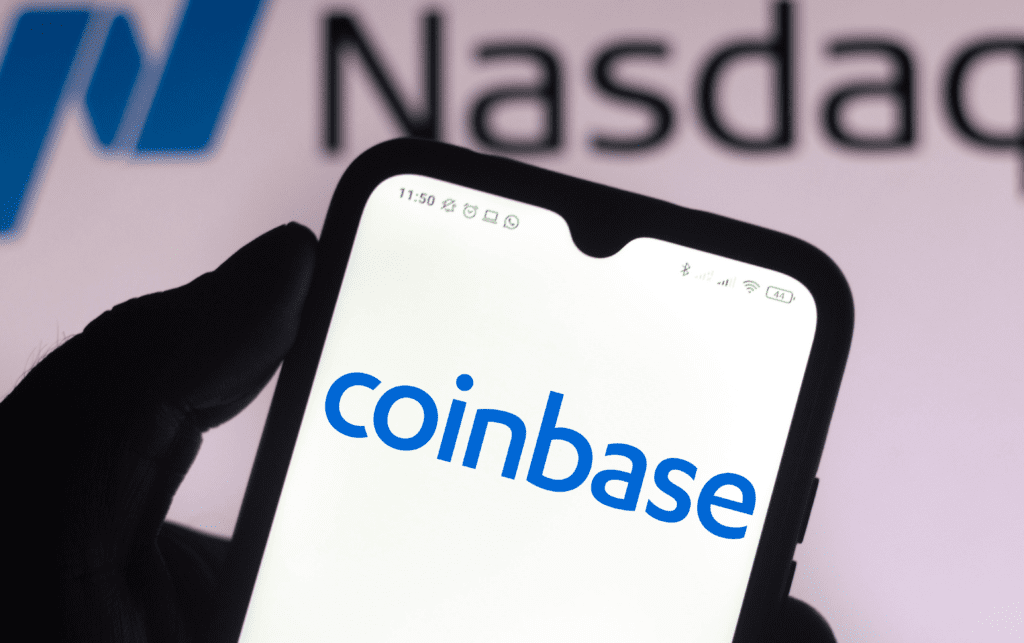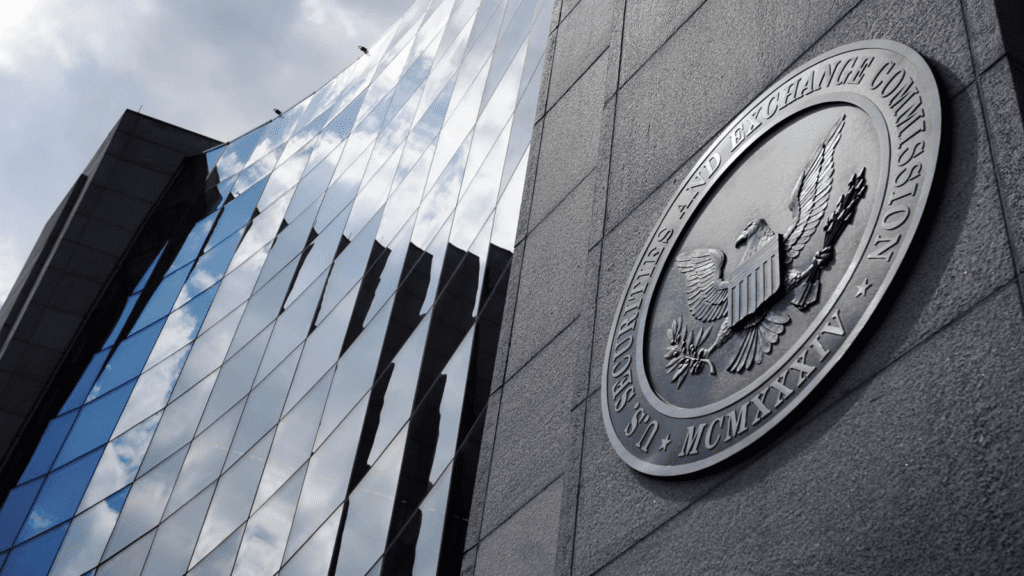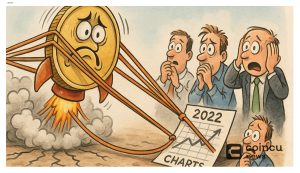Key Points:
- The SEC issued a Wells notice to cryptocurrency exchange Coinbase, alerting the business of possible US securities law.
- This could be a multi-year battle if exchanges take the typical counter-measures like the Ripple case.
- The agency is very rigid and conservative in its approach to this case.
A legal fight between Coinbase and the Securities and Exchange Commission (SEC) might last years. Yet, investors may get a sense of the crypto exchange’s destiny far sooner if a court rules in another widely watched case.

The litigation between the SEC and Ripple Labs may be nearing its end. A court might determine whether XRP, a Ripple-created coin, is security as early as this spring. A move like this might put XRP and the exchanges that enable it to trade under SEC scrutiny.
In the case of Coinbase, this could very well be the 2nd Ripple of the war between the SEC and the crypto world. Let’s discuss with Coincu the hot topic that has been attracting the attention of the community recently.
Coinbase’s troubles with the SEC started in 2022
The SEC revealed in July 2022 that it filed insider trading allegations against former Coinbase executives Ishan Wahi, Nikhil Wahi, and Sameer Ramani. The trio is accused of breaking antifraud provisions in securities legislation in order to gain over $1.1 million in illicit profits between June 2021 and April 2022.
Ishan Wahi reportedly helped to arrange the platform’s public listing announcements that indicated what crypto assets or tokens would be made accessible for trade as part of his Coinbase responsibilities. The other two accused utilized this information to buy at least 25 crypto assets, at least nine of which were securities, and then routinely sold them for a profit soon after the announcements.
In addition to the SEC’s civil case, the United States Attorney’s Office for the Southern District of New York charged the three criminally. The insiders have been charged with conspiracy to commit wire fraud and wire fraud.
According to the DOJ, Ishan Wahi was a member of a confidential Coinbase message channel for workers participating in the asset listing process. After passing on insider information to his brother and Ramani, the latter utilized numerous anonymous Ethereum wallets to acquire significant amounts of certain tokens, including at least 6 of the assets listed on Coinbase on April 11, 2022.
Regardless of how tardy Coinbase was in this circumstance, they could have prevented any commotion by refusing to offer utility-free shitcoins that happen to be unregistered securities serving no other function than vehicles for wild speculation. Nevertheless, with crypto winter dampening retail investors’ excitement and Coinbase apparently suffering from liquidity concerns.
Gurbir Grewal of the SEC said that the regulator was not concerned with labels but rather the economic fundamentals of an offering. In this instance, the facts confirm that a lot of the crypto assets in question were securities. The tokens in dispute are AMP, RLY, DDX, XYO, RGT, LCX, POWR, DFX, and KROM, for the record.
Grewal doubled down on his know-nothing status in reaction to the SEC applying the securities definition to nine of the coins implicated in the insider trading ring by producing a blog post headlined “Coinbase does not list securities. End of story.” The essay never explains how Grewal arrived at such a firm stance other than to declare Coinbase has a thorough procedure to study and approve each digital asset before making it accessible on the exchange.
It’s all just an excuse from the SEC
The SEC’s chairman, Gary Gensler, would want the American public to think that registering tokens or crypto goods with the SEC is equally as straightforward and quick for crypto creators, but this is not the case.
There are several documentation and forms to prepare and file during the early stages of establishing a firm, most of which are pretty easy and uncomplicated. Although many entrepreneurs use attorneys to guide them through this process, they may simply accomplish it themselves. As a consequence, hundreds of small enterprises are founded every day in the United States.
Gensler cautioned cryptocurrency exchange Kraken about failing to register its staking product, which led to Kraken’s settlement with the SEC, which required Kraken to pay penalties and shut down the firm.
The SEC issued a Wells Notice to Coinbase after years of failing to give advice or clear rules. According to Coinbase, the SEC threatened the business with listing what the SEC mistook for security tokens and marketing unregistered collateral products if it did not register as a securities exchange.
Chairman Gensler attempts to erroneously insinuate that most crypto goods and tokens are securities and, as such, should be registered with the SEC, thereby justifying the SEC’s power over cryptocurrency’s unlawful proliferation. At the same time, it presents the encryption sector as a group of lawbreakers who do not follow such easy guidelines, similar to youngsters who willfully cross the line and should be punished by the SEC.
To be honest, Gensler never said that submitting a registration form would be simple or inexpensive. But Gensler’s idea that cryptocurrency firms register by filling out paperwork online fell flat for a more obvious reason: it’s impossible to come in and register until the SEC adopts the registration framework to account for the unique characteristics of digital assets.
Existing registration procedures depend on a series of disclosures that may not fully represent the peculiarities of cryptocurrencies and expose investors to risk. Tokens, reporting businesses, and other ecosystem stakeholders must also register, rendering most cryptosystems inoperable.
In fact, the reason there are so few registered token offerings in the United States is that the SEC has failed to provide any actionable guidance, issue a single rule, or constructively engage with anyone in the crypto industry in order to provide a workable regulatory framework for security tokens.
Coinbase is an SEC-registered company, and in the summer of 2022, it filed a regulation petition with the SEC, seeking clarification on the numerous outstanding problems necessary for digital asset markets to operate, such as exchange registration and staking. This request was ignored.
However, the SEC maintained its enforcement supervision strategy yesterday, issuing Coinbase a Wells Notice addressing Coinbase’s conduct, with the intent of aggressively seeking clarity via public regulation.

Coinbase’s justification
Coinbase tokens reduce the possibility of a lawsuit against the assets it offers and its staking service worries, which assist investors in posting their concerns on various blockchains in return for yield, with Coinbase taking apart.
Unlike the Coinbase lawsuit, which has yet to be filed, the Ripple litigation has been ongoing for over two years. The SEC accused the business and two executives of executing a securities offering in federal court in the Southern District of New York in December 2020. The next month, Coinbase banned XRP trading.
The famous lawsuit in the crypto world has finally come to an end. To prevent a similar destiny as Ripple, token issuers would have to strive to register their fate with the SEC, a costly and risky procedure. Coinbase and other platforms that facilitate trading unregistered securities may face their own lawsuits.
Gensler has also said that crypto platforms should segregate many of the services they now offer, including trading, custody, and exchange services, into independent organizations.
Coinbase claims to have a strong mechanism in place to guarantee that it does not offer securities on its exchange and that the SEC has not informed them of which coins it believes qualify for the categorization.
Analysts view staking as a possible large source of money, but an assault accusing the platform of trading securities would be harmful since it would strike at the core of its trading business.
When Coinbase filed to go public in 2021, it warned of possible regulatory issues and said that its staking and exchange services had remained essentially unaltered since then.

Conclusion
The SEC has taken several crypto companies to court, but the dispute between the SEC and Coinbase over an unspecified fraction of its listed digital assets sets the groundwork for a broader and perhaps defining dispute.
Coinbase has said that it would defend any SEC prosecution, and if Ripple is any guide, such a fight might take years.
Of course, we still have to wait for the next developments. All that is happening now only adds to the speculation about the future of the largest US exchange.
DISCLAIMER: The Information on this website is provided as general market commentary and does not constitute investment advice. We encourage you to do your own research before investing.
Join us to keep track of news: https://linktr.ee/coincu
Harold
Coincu News






















